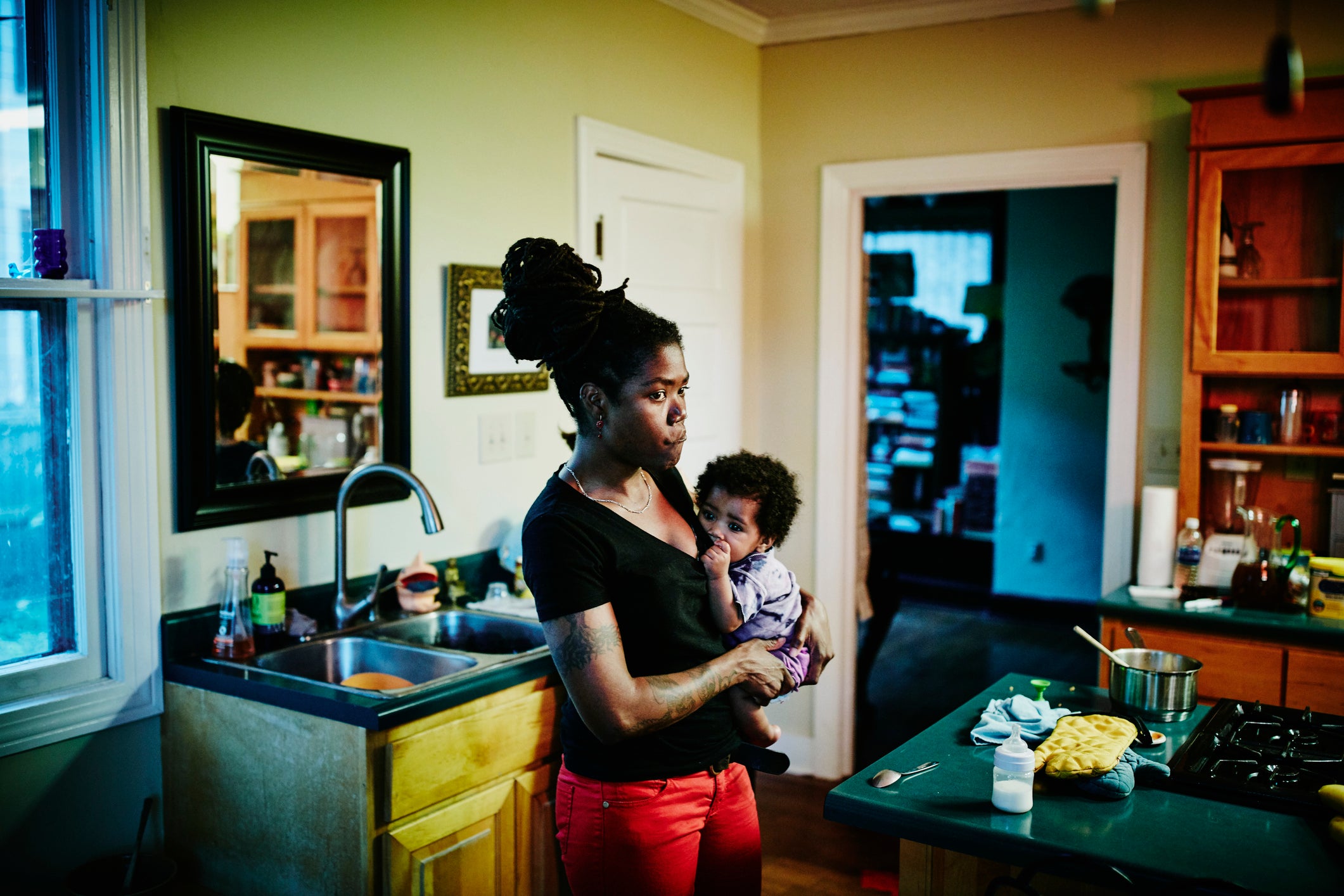
It is an established and alarming fact that Black women are more likely to die during childbirth than white women. This is why Rianka Dorsainvil, a CFP and co-founder of 2050 Wealth Partners, decided she wanted to get a birthing doula when she was pregnant. In her words, she “wanted to be alive to see her son.” Dorsanvail said a friend of hers—a Black woman—was seven months pregnant and sent home from the hospital after complaining about something not feeling right. Two days later she had a seizure and passed away with her unborn baby. It turns out she had preeclampsia. This is a condition that arises during pregnancy that’s characterized by high blood pressure.
Aside from advocating for Black women during pregnancy to prevent unfortunate situations like this, many don’t realize that birthing doulas can also be of assistance for moms postpartum. Depression, burnout and stress often loom in the background after giving birth and Black women deserve support through this. A helping hand and listening ear could help prevent or minimize negative mental health effects. We also can’t assume everyone has a solid support system of people who can help during those early days.
What kind of postpartum support can you expect from a doula? These guardian angels take their experience beyond just being care providers. They offer physical, mental and emotional support, China Ray, a certified birth and postpartum doula, newborn care specialist and childbirth educator tells ESSENCE.
“I work with families on understanding the fundamentals of nursing, bottle feeding, diapering, bathing, soothing and sibling integration,” she says. “Some household duties I provide are light housekeeping, commonly in the nursery and kitchen, mom and baby laundry, as well as quick errands for mom.”
Ray also provides evidence-based prenatal information, postpartum and newborn-related care, and resources for community and spousal support.
As for the mental health aspect of new motherhood, the reality is that women go through a huge transition after giving birth, even if it’s not their first time, says Samantha Griffin, a certified labor and postpartum doula and a certified childbirth educator.
“We’re there to be by our client’s side so that they’re protected and can truly rest,” she says. “Typically, everyone is checking on the baby but a mother may feel ignored by medical professionals and even friends and family. We’re focused on her.”
New moms often experience loneliness and isolation as well as anxiousness around whether the baby is breathing and eating enough, Griffin explains. Another common challenge they navigate is feeling like they’ve lost their identity.
“Not many mothers want to talk about it, but sometimes there’s a sense of loss of who you used to be,” she says. “The newborn phase can be hard and some folks even resent it a little bit. It’s more normal than society leads us to believe.”
Another struggle for new moms can be trusting your parenting capabilities–perhaps you feel inadequate and have no idea how to keep your new human alive. This is understandable as raising a child is new territory for first-time moms, which is why doulas are there to help, Ray says.
“You can read all of the books, watch all of the YouTube videos, and take all of the classes. But reality sets in when it’s your first night home from the hospital with the baby, and you both are staring at each other crying, confused and overwhelmed!”
As a doula, she would be a resource and guide you through any fears, questions, and concerns you have. She describes the role she plays as being your “non-medical best friend.”







So how much does a doula cost? Both Ray and Griffin say the price varies but it could cost anywhere from a few hundred to thousands of dollars. For instance, Ray charges an hourly rate of $33-$75 depending on what state you’re located in and 24-hour rates can be anywhere between $800-$1500/day.
In terms of mediums you can use to pay for services, Griffin says her clients often use FSA or HSA accounts. Additionally, you could add the cost of a doula to your baby registry and most doulas are open to payment plans.
It seems we are getting to a place as Black women where we agree that struggling isn’t a badge of honor — at any stage of motherhood, especially in the beginning. That said, getting a birthing doula not just before you give birth but also postpartum is a way to care for yourself and become accustomed to receiving help during what can be one of the most challenging transitions of your life.






